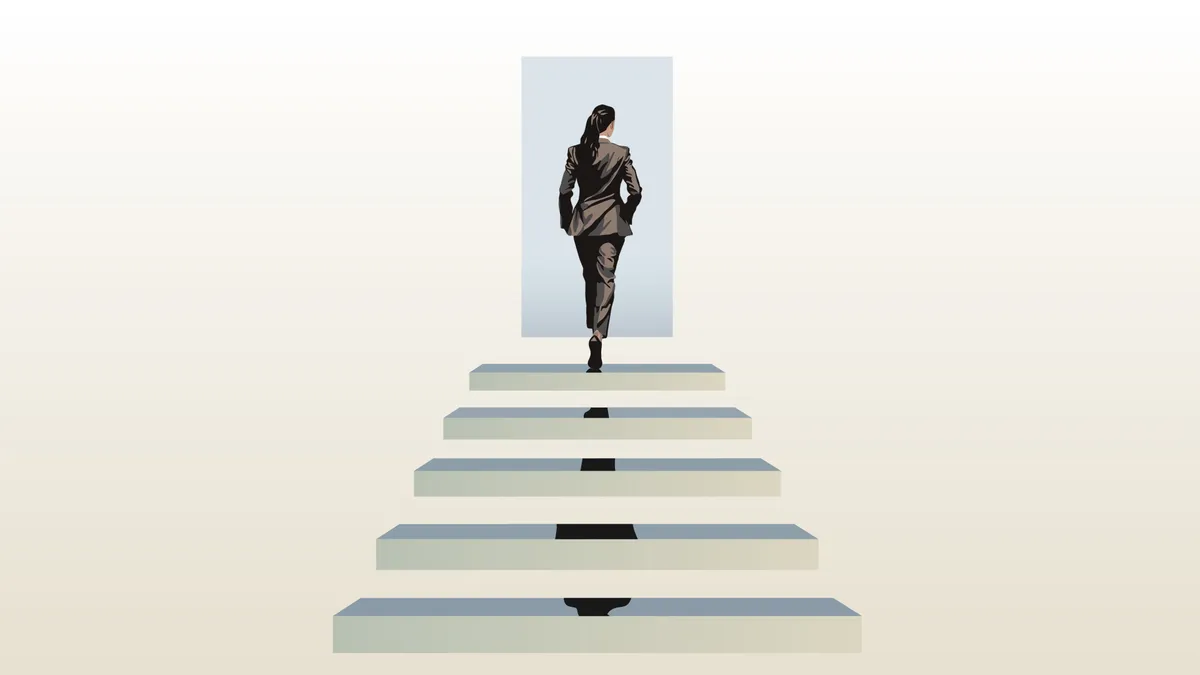Although women leaders support a more inclusive company culture and work environment, they’re less likely to receive career development opportunities, such as mentorship, leadership training or key executive responsibilities, according to a March 6 report from DDI, a global leadership company.
When women don’t receive the development support they need, they turn elsewhere and are 1.5 times more likely than men to leave their companies to advance in their careers.
“Our research shows the business case for developing, advancing and retaining women leaders couldn’t be stronger,” Tacy Byham, CEO of DDI, said in a statement. “Women leaders are driving more inclusive cultures and stronger financial performance for their organizations — yet the problem of women’s disproportionately low representation at the top persists.”
In a global survey of 1,800 HR professionals and 14,000 leaders, including more than 4,000 women leaders, organizations with an above-average proportion of women leaders (having 30% or more women in senior roles and 40% or more women in leadership roles at lower levels) were nearly twice as likely to be rated as having an inclusive culture than those with fewer women.
However, fewer women receive formal mentors, according to the report. On average, 24% of women leaders have a formal mentor, as compared to 30% of men. At the senior leadership level, the gap grows wider, where 27% of women have a formal mentor, as compared to 38% of men.
Women leaders also miss out on opportunities for key executive responsibilities. For instance, they’re less likely to be given profit-and-loss responsibility, which is a crucial step for advancement into C-suite roles, according to the report. About 67% of women in senior executive and C-suite roles reported having P&L responsibility, as compared with 79% of men in these top roles.
Women lack development support as well. In their current roles, women were 12% less likely than men to receive leadership skills training and 15% less likely to be assessed on leadership strengths and development gaps. This can threaten leaders’ long-term engagement and success, particularly in critical moments such as leadership transition, according to the report.
Double-marginalized workers — such as women of color, women with disabilities and LGBTQ+ women — face additional barriers to career progress and remain underrepresented in leadership, according to a report from McKinsey and Co. With a “broken rung” on the career ladder, marginalized women often face the biggest hurdle at the first step up to manager and can’t catch up during their careers, McKinsey researchers said.
To better support women leaders, employers must address concerns around gender discrimination, toxic workplaces and strategic leadership development, one speaker said at the Society of Human Resource Management’s annual inclusion conference in 2022. Even in spaces meant to develop professional women, programs often focus on molding talent into ideal leaders rather than addressing the distinct hardships of working womanhood, she said.
For instance, women are trying to address numerous pressures, such as burnout, mental health concerns, microaggressions, unsupportive work environments, less flexible work arrangements and an unequal share of domestic responsibilities, according to a Deloitte report. In response, many women are looking for another job, switching to part-time work or leaving the workforce entirely.












